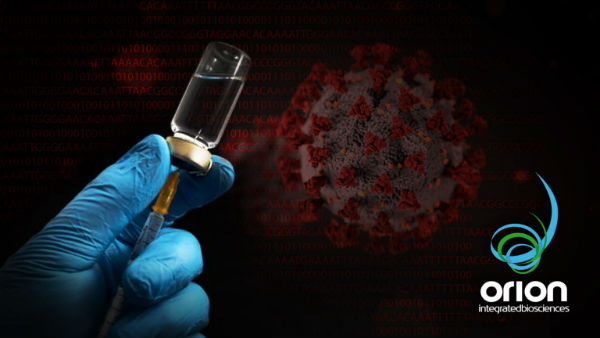
Orion Plans AI Strategy to Design Vaccines Against COVID-19

Orion Integrated Biosciences, a Kansas-based biodefense company with a growing presence in North Carolina, plans to use artificial intelligence to design vaccines to fight COVID-19.
The company says its vaccine design strategy will use powerful AI algorithms it developed from very large datasets of genomic information. Orion expects this will reveal the key genome sequence data necessary to design and produce a safe and effective vaccine.
In response to the COVID-19 pandemic, more than 120 efforts at government labs, universities and corporations around the world are undertaking a range of approaches. Some are new or experimental, intended to accelerate vaccine development.
“Our combinatorial vaccine concept provides a rational approach which will make sure that the vaccines will elicit safe and efficacious immune responses,” said Willy Valdivia, CEO of Orion, in a statement.
“As this technology advances, we plan to expand our platform approach to other infectious diseases. A combinatorial concept involves separate data-driven analysis of the components of the virus with a goal of identifying the most effective measures against it.
“More importantly,” he said, “this technology can adapt as the virus mutations require a new vaccine formulation.”
North Carolina is where Orion will do part of this work
Valdivia told the North Carolina Biotechnology Center, “Orion has a long relationship with NCBiotech as we have been supported with two ROI programs in related technologies against infectious diseases. NC and NCBiotech continue to be the place to do part of this work. We hope to expand this project, but more importantly, build a platform that can be adapted to solve several emerging problems to global health.”
Orion has collaborated with North Carolina Central University to develop tools that help the U.S. Department of Homeland Security predict and spot risks of biological threats such as COVID-19, African Swine Fever virus, and insect pests at the borders.
One of Orion’s core capabilities is in meta-scale comparative genomic analysis and bioinformatics, where the company has pioneered a method known as Motif Fingerprinting. That method is already regularly being applied to biodefense areas such as detection and characterization of pathogens related to national security.
Seeking ‘catch-all’ protection
Orion’s approach is based on detailed computer-aided analyses of millions of genomes, including of SARS-CoV-2, the virus causing COVID-19. Orion’s proprietary computer algorithms perform 3 steps.
First, they break up the complete virus genomes into thousands of small protein fragments called Motif Fingerprints, to determine what sequences will be made.
Each sequence is cross-checked against a database containing billions of Motif Fingerprints from every other organism or virus that has ever been sequenced before. This step identifies only those motifs that are unique to SARS-CoV-2. Because of their unique makeup, these motifs are possible targets for vaccines.
Orion is also working on a slight variation: the development of a universal vaccine candidate for related coronaviruses. In this case, the algorithm identifies those pieces that are shared with related coronaviruses, such as SARS-CoV-1 or MERS-CoV.
Then in a third step, (which makes this approach even more revolutionary), other algorithms combine these individual pieces in millions of different combinations, and re-analyzes them to predict which version will result in the strongest and safest immune response – i.e. which version among millions of combinations will make the best and most effective combinatorial vaccine.
Unlike most other approaches, which rely on a single viral protein region, a major advantage of these combinatorial vaccines is deliberately combining several different pieces of the virus. That’s so the vaccine will cause the production of specific antibodies to target and neutralize the virus This will minimize the possibility that a mutation could arise in the virus that is not recognized by the patient’s immune system.
This computer-aided design phase was recently completed, and Orion has designed two types of vaccines specifically for SARS-CoV-2. One will activate different parts of the immune system, to generate a protective immunity against the virus. The other vaccine candidate will offer a “catch all” protection not only against SARS-CoV-2, but potentially against other coronaviruses too, in a so-called combinatorial universal vaccine.
Previous research supports the approach
Orion has begun producing small amounts of the candidate vaccines and is already performing experiments for efficacy testing. Partners of this project include researchers from the Department of Defense.
Research performed at Orion several years ago indicated that this concept was viable when it was used to design experimental vaccines against earlier coronaviruses-SARS-CoV-1 and MERS-CoV.
Production of a commercial vaccine was never completed, due to diminished needs. In the interim, the Orion platform has advanced significantly, with expectations that its innovative approaches will successfully address SARS-CoV-2 and accelerate the development of an effective and safe vaccine.
